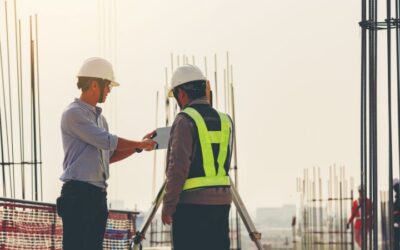Commercial Construction projects come in a variety of shapes and sizes – from hotels to garages, these building endeavors can be massive. It’s important for each project to have proper preparation so that it is completed on schedule; sadly, this isn’t always the case which leads many operations into delays beyond their timeline.
By being aware of these problems and solutions to them, you can anticipate and sometimes avoid unnecessary delays.
WHAT CAUSES THE DELAYS?
Lack of Proper Permits
Navigating the complexities of commercial construction permits can be a real challenge. Failing to plan for an adequate approval timeline could lead to costly delays and stalling out your project’s progress–potentially straining your budget in the process.
Delays When Acquiring Materials
Long-lead materials, like customized or larger varieties, can be the project’s Achilles heel if not ordered soon enough. As tempting as it may be to wait until the last minute for these orders – something that is all too common even with permits – procuring them early on will help ensure construction stays right on track and avoids any costly delays down the road.
A Lack of Good Communication
Working on commercial projects is like a symphony: many instruments coming together to create something beautiful. But if the communication isn’t clear, it can quickly become discordant! Ensuring that everyone involved in the project has access to conversations and updates will help build an orchestra of success.
WHAT ARE THE RECOMMENDED SOLUTIONS?
1) Plan Ahead
Achieving a successful commercial construction project requires more than just hard work and effort. It demands thoughtful planning prior to breaking ground – outlining the goals, budget limits, timeline expectations, and finished product specifications. While constructing an apartment building for instance, ensure that you consider all pertinent details such as how many floors will be included in the build; how many units are needed within those multiple stories; plus, what kind of floor plans would complement each space best.
2) Have Realistic Time Frames for Permits
To ensure your project runs smoothly, plan ahead! Allow plenty of time for government approval when starting the planning process. This way you’ll have all necessary permits before beginning any major developments – ensuring a successful outcome.
3) Have a General Idea of Your Material Needs
Tired of waiting for materials to arrive on-site? A savvy general contractor can help you get things done quickly by placing orders early and avoiding any last-minute delays. With their knowledge and experience, they can provide the key information needed to make sure your project is running as smooth as possible.
4) Organize Communication
Streamlined communication is essential for keeping everyone in the loop. A well-defined chain of contact, an efficient information exchange process and relevant contacts are key to ensure all involved parties stay updated on important information or events. Additionally, regular meetings can keep people abreast with valuable updates that they need to know.
5) Prepare Your Funds
With the right planning, you can avoid frustrating delays in your budget. Consider taking a broad look at potential expenses while also securing funding to ensure that all is accounted for. Additionally, creating alternate sources of financing and preparing contingencies could be critical shields against long-term roadblocks down the line.
6) Avoid Unneeded Changes
To ensure a project is completed on time and within budget, it’s important to consider the impact of changes. While some modifications are necessary for success, avoiding optional alterations can help keep things moving along smoothly.
After following the recommended steps, it is time to select contractors with impeccable reputations and expertise in commercial construction. To ensure success for your project, consider shortlisting those that are knowledgeable of cutting-edge technologies like drones which can be used to survey sites from a bird’s eye view – resulting in more accurate data collection and zero oversights.
Keeping your commercial construction project on schedule may depend upon more than just a subcontractor’s technological innovations and reputation. Make sure to investigate their references, safety standards, and staffing information so that you can be confident they have the right tools and tactics in place for success.




